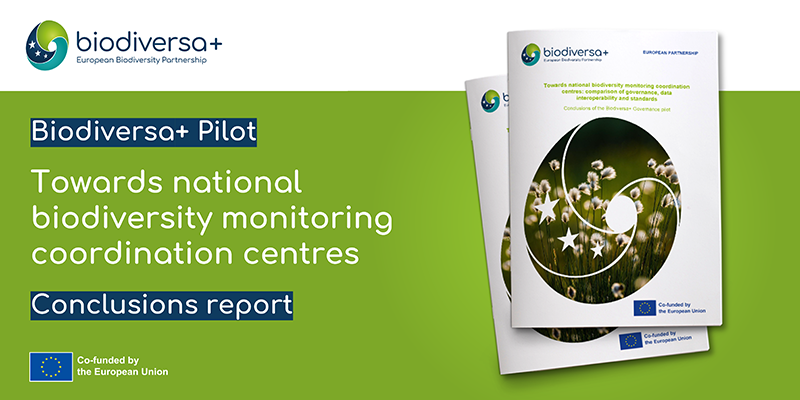Imagine a Europe where biodiversity monitoring flows seamlessly across borders, providing a clear picture of the continent’s ecological health… To achieve this goal, Biodiversa+ is promoting the establishment of coordination hubs at different levels, spanning the European, national and sub-national scales.
In January 2023, a one-year pilot project was launched to assess the current state of governance and use of data and metadata standards such as Darwin Core (DwC) and Ecological Metadata Language (EML). Coordinated by the Ministry of Environment of Finland through Syke, the pilot involved partners from ten countries: Bulgaria, Czech Republic, Croatia, Denmark, Finland, France, Israel, Italy (Autonomous Province of Bolzano), Portugal (Azores) and Sweden.
It revealed a diverse landscape, with governance structures ranging from centralised with few organisations involved (e.g. Denmark) to decentralised models involving numerous organisations (e.g. Bolzano, Italy). The maturity of data management varies across the board, with all participants in need of improvement. The good news? Most countries share common ground, using the DwC and EML data standards for a degree of harmonisation. Half of the participating regions already have established national hubs, which are crucial for connecting to the future European Biodiversity Monitoring Coordination Centre (BMCC) developed in collaboration with EuropaBON. These hubs typically operate under centralised, legally mandated frameworks. Establishing hubs in the remaining regions and clear focal points in others is a top priority.
While the overall picture is promising, some obstacles require attention. Difficulties in finding and accessing data hamper comprehensive analysis. Consistent funding is scarce and some concerns remain about the use of DwC.
The report also recognises the need for flexibility. National monitoring programmes tailored to specific contexts should remain relevant. The BMCC is seen as a supportive force, providing data sharing, best practice and capacity building, rather than a rigid mandate.
The results of the pilot are paving the way for concrete steps. Defining detailed plans for national hubs, prioritising their development independently of the BMCC, and fostering collaboration with established networks of experts are all key actions.
The message is clear: achieving a harmonised biodiversity monitoring network across Europe requires cooperation, flexibility and a focus on common goals. By embracing these principles, Biodiversa+ can help paint a truly complete picture of Europe’s ecological health, enabling informed decision-making for generations to come.




